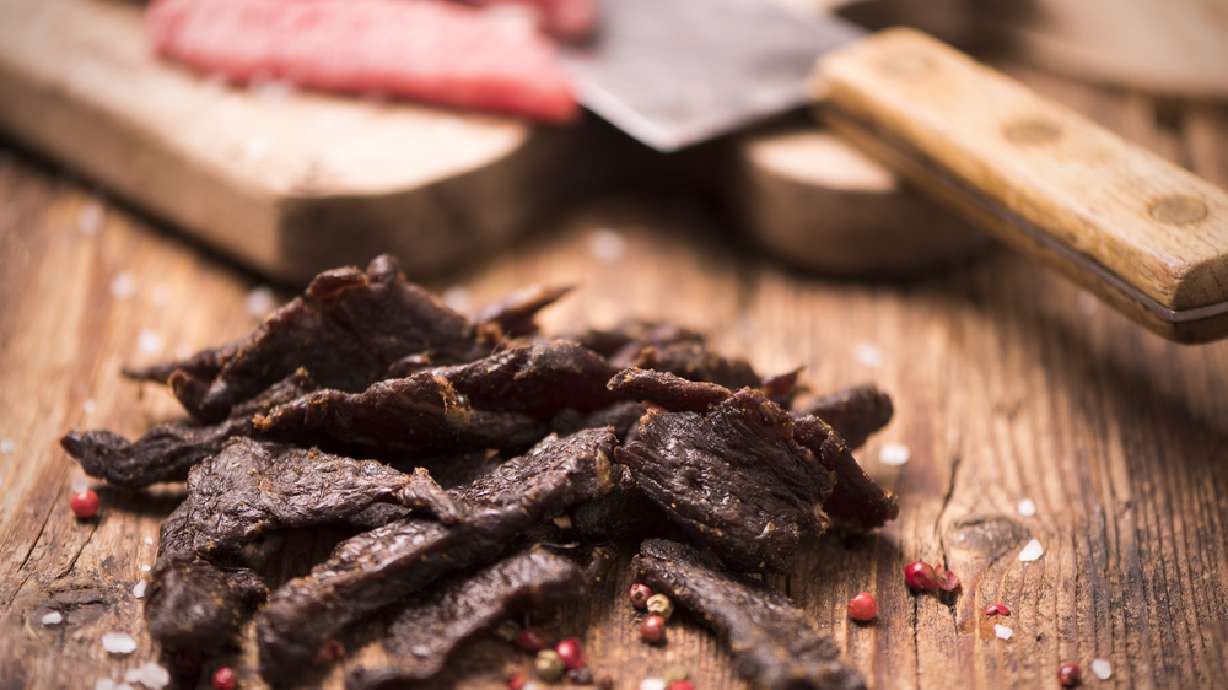Estimated read time: 4-5 minutes
This archived news story is available only for your personal, non-commercial use. Information in the story may be outdated or superseded by additional information. Reading or replaying the story in its archived form does not constitute a republication of the story.
THE GREAT OUTDOORS — In hunting, there's an untold number of ways to bag big game. The obvious example is the endless debate on which caliber is suited for which animal. At the end of the day, though, a well-placed shot with an adequately powered cartridge will bring down any big game animal.
Preparing wild game is similar. Thousands of recipes are available online, and one man has made his entire living around cooking wild game. Steven Rinella's cookbook is like a bible for many hunters, and he just released a podcast about the art of pickling waterfowl gizzards.
It's time-consuming to wade through all that information, especially if you're looking for a way to prepare wild game that you've never tried before. So here is a simple, but effective, method to jerky your wild game.
Slice the meat
I process my own big game and like to separate the meat into three "categories": roast, steak and stew meat/burger. The stew meat or burger is veined with more fat, usually comes from the front shoulders of the elk, and would likely yield little usable steak or roast after trimming the fat. This is the meat I like to use for my jerky, but there's no reason you can't use a big chunk of roast meat, either.
A standard meat slicer works just fine for this job. However, you want to make sure that you're using partially frozen meat; completely frozen meat tends to chip when it's run through a meat slicer, while cuts of completely thawed meat end up stringy and messy.
Pick the marinade
The marinade you use depends entirely on the flavor you're going after. From teriyaki to burn-off-the-roof-of-your-mouth spicy, this is the part of the jerky process you can get creative with.
This is a classic marinade recipe that works well on everything from deer to pronghorn:
- 2 cloves minced garlic
- 2 tsp soy sauce
- 2 tbsp tomato sauce
- 2 tbsp Worcestershire sauce
- 1/2 tsp black pepper
- 1/4 tsp sea salt I often double this recipe to start. You want to make enough to fully cover or soak all the meat while it marinates.
Marinade and 'cook'
Once you've made the marinade, the next step is to pile the slices of meat into a glass bowl or baking pan. You'll then pour the marinade over the meat, ensuring everything is covered well. Then, cover the bowl or pan with plastic wrap and stick it in the refridgerator for at least 12 hours. You can let it sit for 16-24 hours for a richer flavor.
Then, you have a few options for cooking your jerky. The most common method is using a food dehydrator. You can use your oven, though it's not nearly as convenient as a dehydrator.
Regardless of which method you choose, you need to obtain an internal temperature of 160 degrees fahrenheit.
"After heating to 160 degrees fahrenheit or 165 degrees fahrenheit, maintaining a constant dehydrator temperature of 130 to 140 degrees fahrenheit during the drying process is important because the process must be fast enough to dry food before it spoils; and it must remove enough water that microorganisms are unable to grow," according to the United States Department of Agriculture.
Once that temperature is reached, you'll wait for the jerky to finish drying.
Jerky is done when you can bend a piece in half and see the meat split, but not crack into multiple pieces. It's overdone if the piece cracks into multiple pieces, and if it bends without breaking, it's not quite done.
Depending on how thick your jerky is and how much you're making at once, it'll take anywhere from four to eight hours to get it "just right." A safe bet is six hours.
What's your favorite way to jerky wild game? Share your ideas in the comments.









